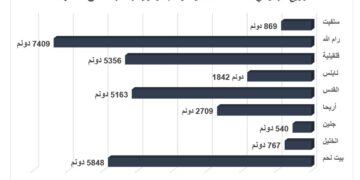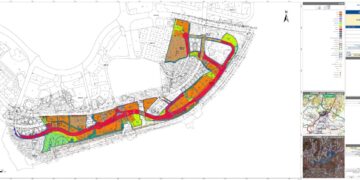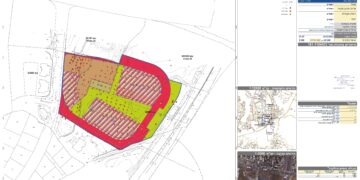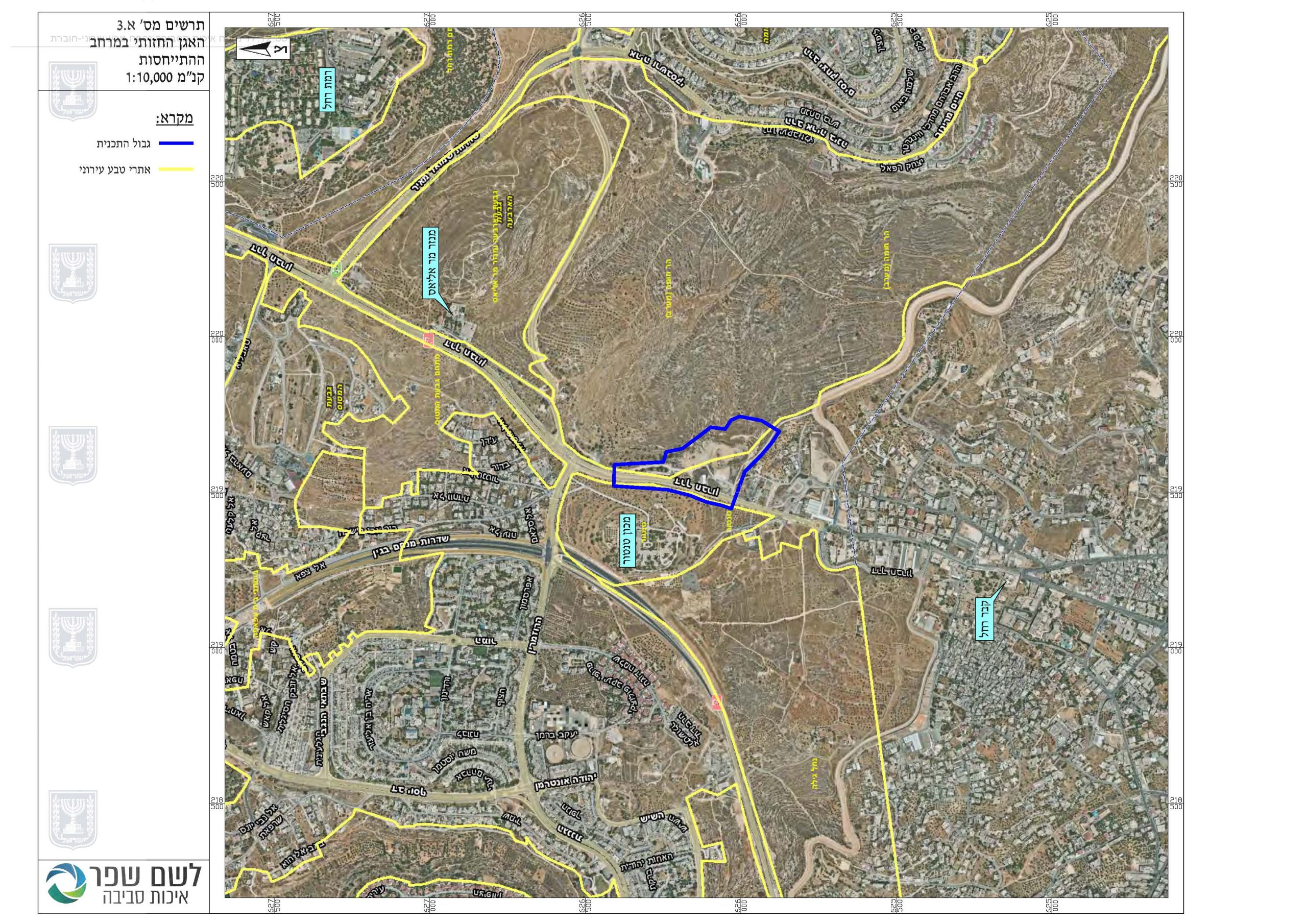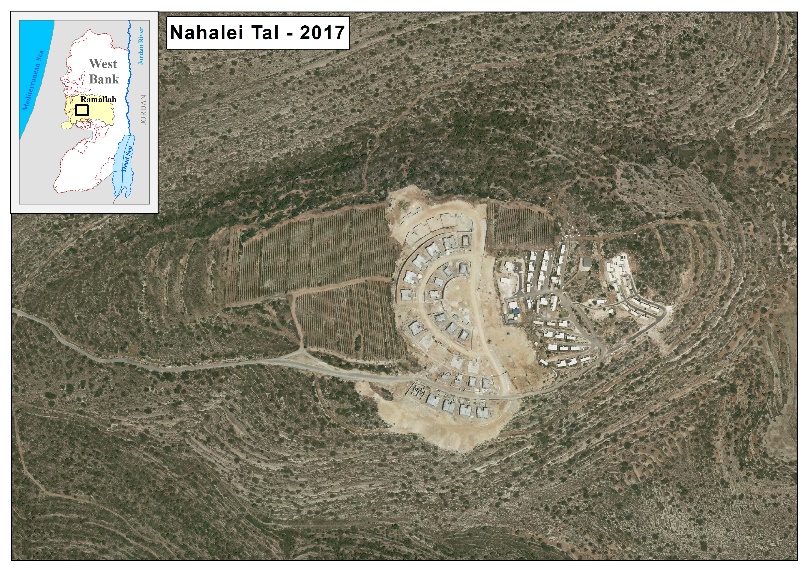- Violation: Expanding an outpost.
- Location: Al-Mazra’a Al-Gharbiya (Al-Qibliya) / Norh west Ramallah.
- Date: early 2020.
- Perpetrators: people of the village.
Description:
Kerem E’lam is continuously expanding, it is reported that the Israeli occupation ravaged more than 60 dunums around the outpost for future construction. It is important to mention, Illegal settlers set up seven mobile houses in a nearby location to form a new outpost.
Yousif Shreiteh , an activist in Al-Mazra’a Al-Gharbiya (Al-Qibliya) village told LRC:
“Since the establishment of Kerem ‘Elam outpost in 2003, the occupation have been imposing movement restrictions, especially in olive harvesting season , which hinders access to more than 200 dunums of olive groves. In reality, this outpost is a continuation of an Israeli scheme previously announced. The scheme is basically to form a huge settlement cluster that links Dulib , Nahliel , Talmon and Kerem ‘Elim, which if implemented will block vast areas of lands and segregates the north-west Ramallah suburbs from the city.”
 A view of the illegal outpost Kerem ‘Elim
A view of the illegal outpost Kerem ‘Elim
During the recent few years, residents of the outpost implemented tens of attacks against farmers and inhabitants of Al-Mazra’a Al-Gharbiya.
About Al-Mazra’a Al-Gharbiya (Al-Qibliya):[1]
It is located 12km to the northwest of Ramallah city. The village is edged by Abu Shkeidim area from the north, Talmon colony from the west, Abu Qash village from the east, and Ein Qiniya village from the south.
The village has a total land area of 15,275 dunums, of which 1165 dunums are the built-up area. Around 5000 people inhabit the village (2014).
The Israeli occupation confiscated around 329 dunums from the village’s lands to establish the colonies of Nahliel (1984) and the colony of Talmon (1989).
Also, the bypass road number 450 confiscated 75 dunums from the village.
According to Oslo lands classifications, the village lands are as follows:
- 8533 dunums are area classified “B”
- 6742 dunums are area classified “C”
Land Research Center sees Israel continuous expansion on colonies in the West Bank and Jerusalem at the expense of Palestinian and lands a flagrant violation of Human Rights and all international laws and conventions, which prohibit disposition of public properties in occupied countries.
UN Security Council Resolution 242 of 1967: calls for
- the Withdrawal of Israel armed forces from territories occupied in the recent conflict;
- Termination of all claims or states of belligerency and respect for and acknowledgment of the sovereignty, territorial integrity and political independence of every State in the area and their right to live in peace within secure and recognized boundaries free from threats or acts of force.”
UN Security Council Resolution 449 of 1979: the Security Council determined:
- “that the policy and practices of Israel in establishing settlements in the Palestinian and other Arab territories occupied since 1967 have no legal validity and constitute a serious obstruction to achieving a comprehensive, just and lasting peace in the Middle East”
UN Security Council Resolution 452 of 1979: states that
- “the policy of Israel in establishing settlements in the occupied Arab territories has no legal validity and constitutes a violation of the Fourth Geneva Convention relative to the Protection of Civilian Persons in Time of War of 12 August 1949” and “calls upon the Government and people of Israel to cease, on an urgent basis, the establishment, construction and planning of settlements in the Arab territories occupied since 1967, including Jerusalem.”
UN Security Council Resolution 465 of 1980:
- It expressed concern at Israeli settlement policy in the Arab territories and recalled resolutions 237 (1967), 252 (1968), 267 (1969), 271(1969) and 298 (1971). It further called upon the State and people of Israel to dismantle such settlements. The resolution calls on all states ‘not to provide Israel with any assistance to be used specifically in connection with settlements in the occupied territories
- Hough convention 1907 :
- Article 46: the occupying power must not confiscate Private property .
- Article 55: The occupying State shall be regarded only as administrator and usufructuary of public buildings, real estate, forests, and agricultural estates belonging to the hostile State, and situated in the occupied country. It must safeguard the capital of these properties, and administer them in accordance with the rules of usufruct.
- Geneve forth convention 1949:
- Article 49: The occupying power shall not deport or transfer parts of its own population into the territories it occupies.
- Article 55: Any destruction by the Occupying Power of real or personal property belonging individually or collectively to private persons, or to the State, or to other public authorities, or to social or cooperative organizations, is prohibited.
- Article 174: taking of hostages and extensive destruction and appropriation of property, not justified by military necessity and carried out unlawfully and wantonly.
[1] GIS-LRC
The Land Research Center
LRC



